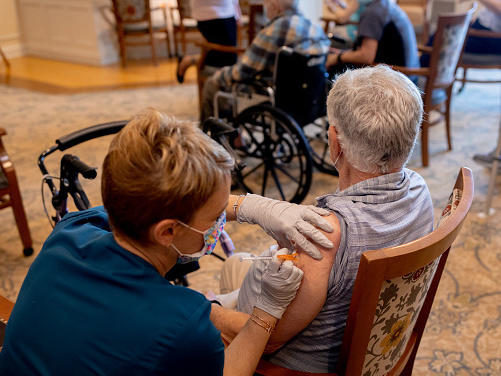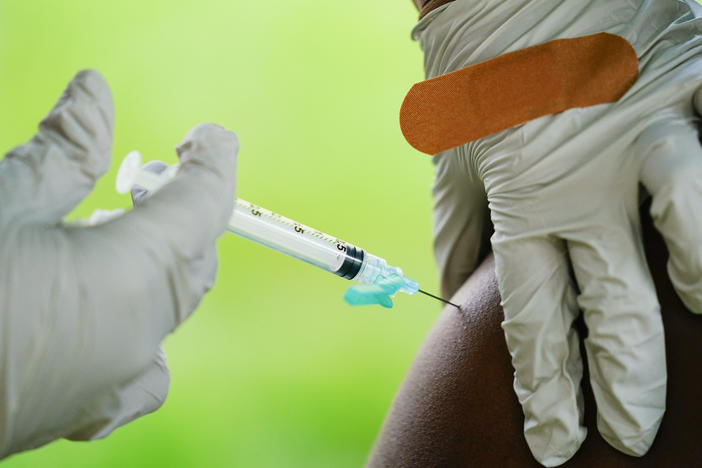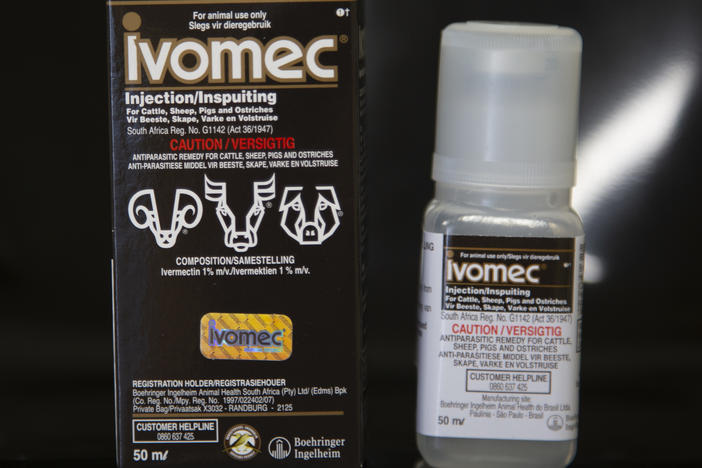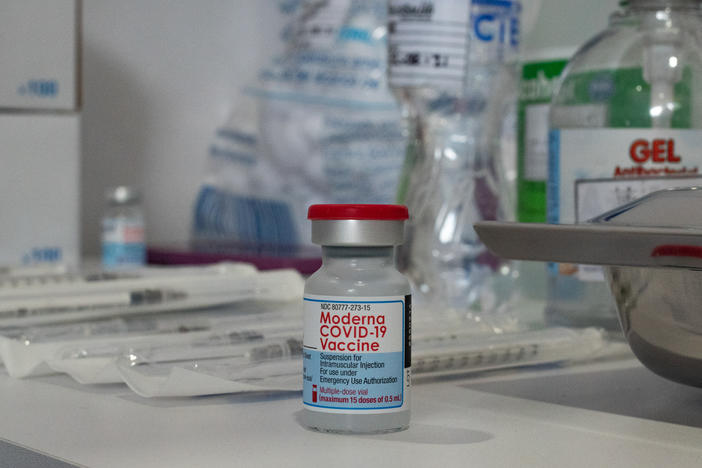Section Branding
Header Content
A Pfizer Analysis Makes The Case For A COVID Vaccine Booster
Primary Content
Updated September 15, 2021 at 1:51 PM ET
The Food and Drug Administration released an analysis by Pfizer on the need for a booster shot of the Pfizer-BioNTech COVID-19 vaccine.
Pfizer's analysis says data from Israel and the United States in the context of the delta variant suggests "that vaccine protection against COVID-19 infection wanes approximately 6 to 8 months following the second dose."
The company said the available data supports its request for FDA approval of a third dose of the COVID-19 vaccine to be given about six months after the second dose in people 16 years and older.
The agency posted the briefing document and data ahead of a public advisory committee meeting scheduled for Friday. The committee is the same one that voted in support of emergency authorization of the Pfizer-BioNTech vaccine in December.
In an unusual wrinkle, the FDA's analysis, which would shed light on the agency's stance, wasn't released simultaneously. Typically the agency posts its own briefing document at the same time as a company's.
Late Wednesday morning, the agency put its analysis online without taking a clear stand on whether it supports a booster. The FDA noted that some observational studies suggest that the efficacy of Pfizer-BioNTech's vaccine wanes with time and may be challenged by the delta variant. However, the agency noted that current data indicates that the Pfizer-BioNTech, Moderna and Johnson & Johnson vaccines "still afford protection against severe COVID-19 disease and death in the United States."
In support of a booster, some public health officials have cited research that shows a drop in protection from infection with SARS-CoV-2, the virus that causes COVID-19, several months after vaccination. Others have countered that the vaccines remain highly effective in preventing serious illness, hospitalization and death, even against the delta variant.
Some doctors have said the need for a third shot of the COVID-19 vaccine is clearest in groups at special risk, such as people with compromised immune systems or older adults. In August, the FDA authorized a third dose of the Pfizer-BioNTech and Moderna vaccines for immunocompromised people.
As a result of disagreements in the medical and public health communities, the FDA advisory committee's deliberations may be more contentious this time around. While the agency isn't required to follow the advice of the committee, it usually does.
The Biden administration has set a goal of Sept. 20 to begin rolling out boosters for people who were fully vaccinated months ago to bolster protection against the virus further. The data for the Pfizer-BioNTech COVID vaccine is the first to make it to the FDA for review.
The administration's announcement of a target date for booster availability before the FDA, the Centers for Disease Control and Prevention and their experts made their own assessment was controversial.
Details on eligibility and timing of a booster would hinge on the FDA's decision on Pfizer's application.
The World Health Organization has criticized developed countries' plans to offer booster shots widely when poorer countries still don't have enough vaccine to begin immunizing their people.
"We have been calling for vaccine equity from the beginning, not after the richest countries have been taken care of," WHO Director-General Tedros Adhanom Ghebreyesus said on Sept. 7.
He asked for a moratorium on boosters through the end of the year, except for groups of people at high risk, to help every country vaccinate 40% or more of its population. His call for a moratorium has gone unheeded.
Copyright 2021 NPR. To see more, visit https://www.npr.org.
Bottom Content




